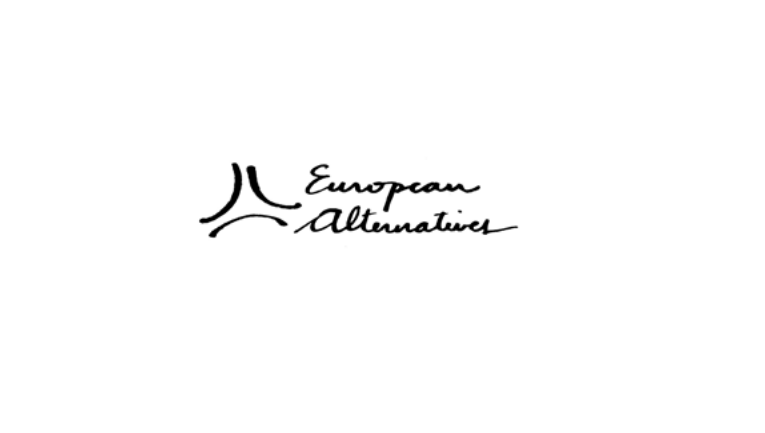Jan 12, 2017
Ten Years of European Alternatives
‘Europe: An unfinished adventure’ is the title of a book by Zygmunt Bauman that was formative for European Alternatives, and one of the reasons we invited him to give the opening lecture of our very first activity – the London Festival of Europe – in March 2007. Almost 10 years later, and a couple of days from the passing away of Bauman, we can also say (with a tone of humility) ‘European Alternatives: an unfinished adventure’.

The opening lecture by Zygmunt Bauman for the London Festival of Europe in 2007 launched European Alternatives
One of our concerns in launching European Alternatives was to contribute to reenergise a continent we felt was at risk of slumbering into irrelevance, incapable of finding the cultural and political resources to renew itself. A cursory glance over the past ten years suggests that at the level of the political institutions and elites this energy for renewal has indeed been lacking; but at the same time, a grass-roots politics of contestation and civic invention has been spreading across the continent, and European Alternatives has been networking the dispersed elements of this renewal whilst acting as a trailblazer of a radical transnational European citizenship.
At the beginning of 2017, where so much seems in peril and we might be inclined to become defensive, it is vital to keep in mind that Europe is at its best where it is experimental, audacious and adventurous; that the fortune of Europe is to be unfinishable, open, permeable and curious. This is the Europa that generates enthusiasm, inspiration and opens a space for alternatives to emerge.
At the beginning of 2017, where so much seems in peril and we might be inclined to become defensive, it is vital to keep in mind that Europe is at its best where it is experimental, audacious and adventurous; that the fortune of Europe is to be unfinishable, open, permeable and curious. This is the Europa that generates enthusiasm, inspiration and opens a space for alternatives to emerge.
10 years ago, the first physical space that European Alternatives opened to work was a disused warehouse just off Brick Lane in London. With no heating and highly unreliable internet, a first team of people coming from all over the world worked from one of the most cosmopolitan streets of one of the most cosmopolitan cities to call for an alternative path for a Europe of democracy, equality and culture beyond the nation-state. We did not think that the nation-state had already vanished: we thought precisely that in the twilight of the national world there would be manifold attempts to resurrect it, but that it would be resurrected as a monster; that any hopeful, positive politics in our century and in this part of the world must be at least European in scope and imagination. 10 years later, we have seen some of those monsters resurrected, whether it be in Orban’s Hungary, Kazynscki’s Poland, May’s Brexit Britain or elsewhere.
10 years on from our first activities at the 50th anniversary of the Treaty of Rome, for the at the 60th anniversary, we will organise major events in Rome and elsewhere and work fervently to call together a coalition of citizens and organisations to at once imagine, demand and enact an alternative for Europe.
Over the decade, European Alternatives has extended its membership, network and activity across the length and breadth of the continent and beyond, and has offices in several cities (with heating!) 10 years on from our first activities at the 50th anniversary of the Treaty of Rome, for the 60th anniversary, we will organise major events in Rome and elsewhere and work fervently to call together a coalition of citizens and organisations to at once imagine, demand and enact an alternative for Europe. We know it can be done; indeed, it is the only realistic option for a liveable future. The status-quo cannot and must not hold, and regressive nationalist fantasies offer no solutions. Working together with you, in the spirit of camaraderie that comes with adventure, over the next decade we will work for a Europe lives up to its promise as a transformative force for peace, reconciliation and democracy in the world.
Niccolò Milanese, Chair of European Alternatives
